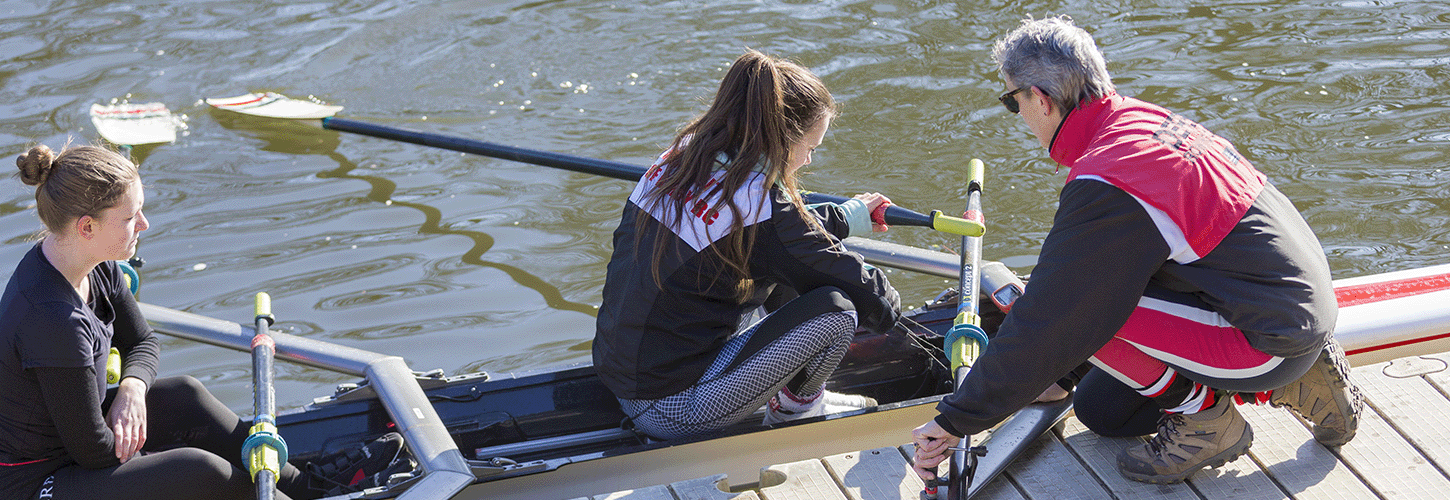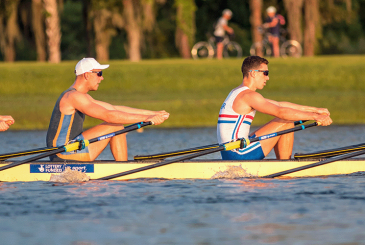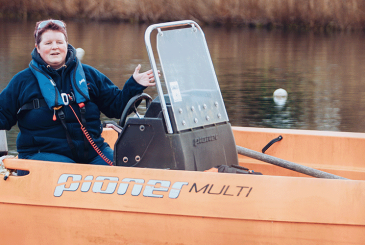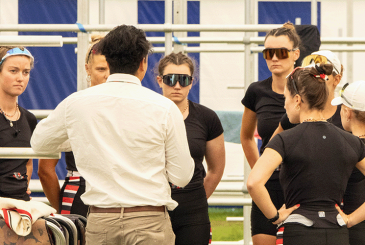In a world where success is often is portrayed as a simple statistic, wins and losses, it is hard to sometimes see the broader view. Katie Sparks, Lecturer in Sport and Exercise Psychology at Staffordshire University, explores how to do that.
The challenge
We live in a society that is obsessed over tangible achievements and quantifiable results, top grades, medals, social media ‘likes’ and being the first. This perspective sometimes holds true in the realm of competitive sport, where success is frequently equated by the final score on the scoreboard. However, does this reflect the true picture of athletic achievement?
The landscape of the sporting world is evolving and although winning is undoubtedly a gratifying outcome, there’s a broader spectrum to success. It is oversimplistic to define athletic success solely on wins or on one moment of time. In doing so, we miss the complexity of achievement. Athletic success is multifaceted, it encompasses areas such as their growth, development, and their integrity both within and outside the realm of their sport. So shouldn’t the evaluation of coaches’ success follow a similar trajectory?
A coach’s effectiveness was determined by their capacity to enable each athlete to shine in their own distinct way
Traditionally, people have evaluated coaching success based on the crews or rowers’ performance and win/loss records, however, this would overlook the significant contributions coaches make to athlete development and the sport as a whole. My experiences working with junior athletes in the Diploma of Sporting Excellence program has provided firsthand insight into this reality. The essence of coaching, as we know, goes far beyond the result. For this article I had the pleasure of speaking to several rowing coaches from diverse backgrounds and expertise to help build a picture of what coaching success is and potential ways of measuring it.
Instilling confidence as a measure of success
While coaches acknowledged that the wins and losses remained important indicators of their performance, it swiftly came to light that these only constituted a fraction in the equation of success. Coaches expressed the critical role they played in cultivating trust and instilling confidence in their rowers. Confidence is a powerful and transformative quality for any young athlete, and a characteristic that propels us to achieve our goals and contributes to our overall wellbeing. It’s also a quality that transcends the confines of sport, and spills into their academic, personal, and professional lives.

Enabling every athlete’s goals
Another facet of success was the ability to facilitate an environment that celebrated individuality, intrinsic motivation, and rowing for all. Coaches were successful when they underpinned what they did with an understanding of what fuels the passion of each individual athlete and igniting and sustaining that flame. Coaches spoke about exploring each rower’s individual goal(s) and creating opportunities for personal victories, even within the team climate and selection process where some rowers may not be “successful”.
A coach’s effectiveness was determined by their capacity to enable each athlete to shine in their own distinct way. This ensured athletes’ progression in their journey regardless of boat placement or selection, fostering a sense of value and aligning with their core motivations. Effective coaching came from grasping the rower’s passion and motivators, forging a genuine alignment with their values and thus facilitating true authenticity and longevity.
The legacy of influence
Further, the legacy of influence emerged as an additional measure of success. Many of the coaches, having once been athletes at varying levels themselves, revealed how fond they were of their coaches. Many reflected on the experiences, values and lessons they had imprinted upon them. This recognition underscored the enduring impact coaches have on athletes, transcending the realm of sport to shape personal growth and development.
Although the coaches did not explicitly cite ‘legacy of influence’ as a measure of success, the lasting impression they can leave is undeniable. Creating positive, holistic, and enriching experiences for athletes, despite the circumstances, offering the safe space to learn from setbacks and successes, nurturing individual growth, and instilling the confidence to take ownership of their own journey, all constitute as measures of success that surpasses merely a win in a race.
[Coaches] embody the essence of mentors, facilitators, and enrichers
These outcomes become enduring companions that athletes carry into all dimensions of their lives. To some rowers, a coach may become the medium for providing the exclusive space in which they can genuinely grow, develop, and provide a sense of belonging. Witnessing a genuine smile and a happy rower, is much more than a traditional win.
Summary
In summary, coaches are more than just their wins and/or losses. They play an integral part in shaping our rowers of today, not only as athletes but also as individuals. Their influence can extend beyond the immediate arena and permeate their character, values, and life trajectories. Coaches encompass more than a coaching role; they embody the essence of mentors, facilitators, and enrichers.
With thanks to Abigail Davies (Assistant Head of Rowing – Dulwich College), Bruce Gascoine (Head Coach – RGS High Wycombe) and Nicola Hardy (British Rowing Satellite Coach – Nottingham) for their contributions to this article.










